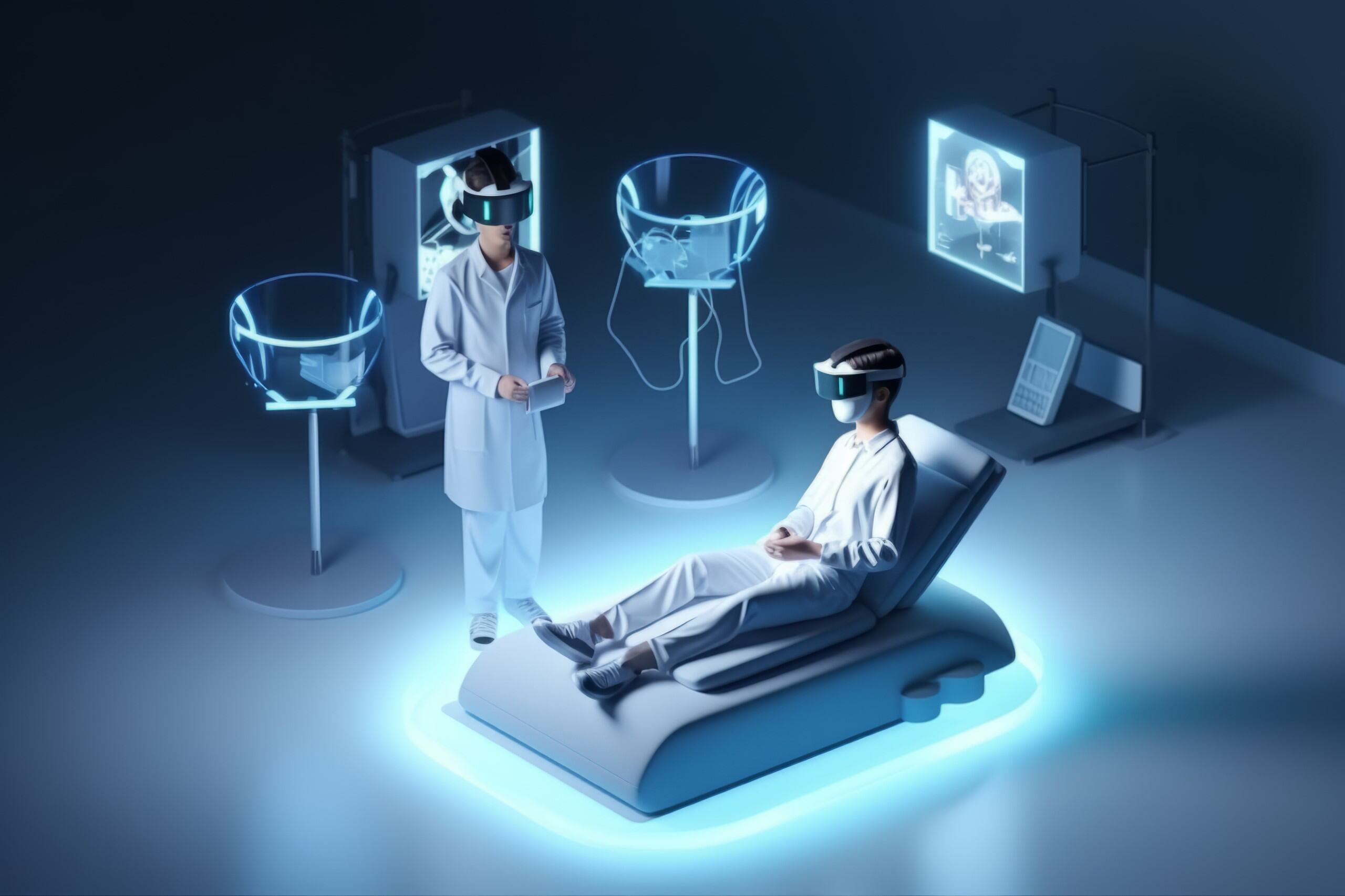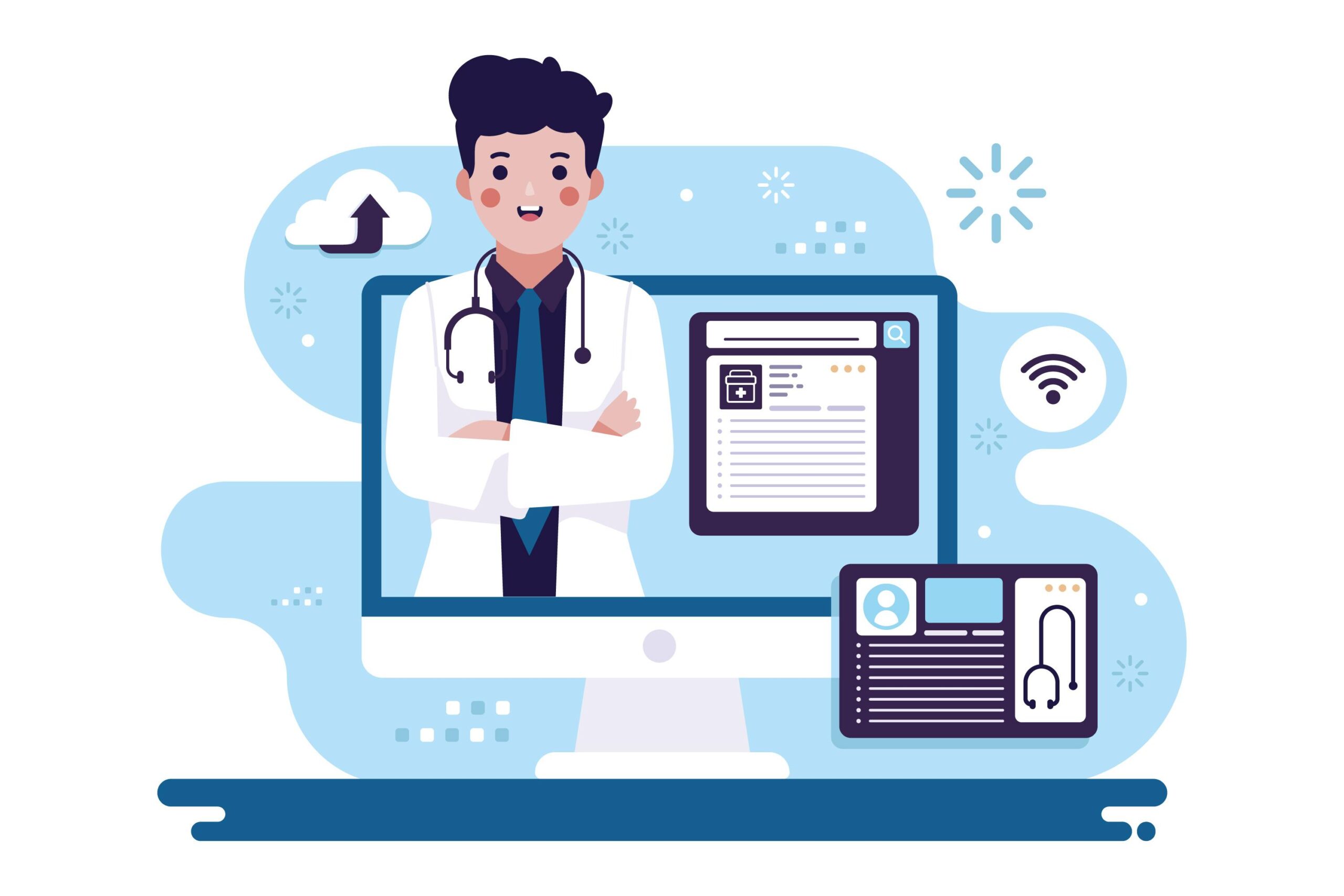Virtual Twin Patients: What Indian Doctors Can Learn from the Future of Surgical Planning

How Electronic Medical Records are Revolutionising Healthcare
28 Jun 2024
The healthcare industry is undergoing a significant transformation with the adoption of Electronic Medical Records (EMR). EMRs are digital versions of paper charts that contain the medical and treatment histories of patients. They have revolutionised healthcare by enhancing efficiency, improving patient care, and facilitating better data management. For Indian doctors, EMR systems like TatvaPractice is particularly impactful, addressing unique challenges and streamlining operations. This blog explores how EMRs are revolutionising healthcare and the specific benefits they bring to the Indian medical landscape.
Enhanced Efficiency and Productivity
One of the most significant advantages of EMR systems is the improvement in efficiency and productivity within healthcare facilities. EMRs eliminate the need for time-consuming paperwork, allowing healthcare professionals to focus more on patient care. With quick access to patient records, doctors can make informed decisions swiftly, reducing the time spent retrieving and updating files.
Streamlined Workflow
EMR systems streamline workflow by automating administrative tasks. Scheduling appointments, billing, and managing patient records can all be done electronically, reducing errors and saving time. For instance, TatvaPractice offers seamless integration with practice management systems, ensuring that all aspects of a practice’s operations are coordinated and efficient.
Improved Coordination and Communication
EMRs facilitate better coordination among healthcare providers. With shared access to patient records, doctors, nurses, and specialists can collaborate more effectively, leading to improved patient outcomes. This is particularly important in multi-specialty clinics and hospitals, where coordination among different departments is crucial.
Improved Patient Care
The primary goal of any healthcare system is to provide high-quality patient care, and EMRs play a vital role in achieving this. EMRs enhance the quality of care by providing comprehensive and up-to-date patient information at the point of care.
Accurate and Comprehensive Patient Information
With EMRs, healthcare providers have access to accurate and comprehensive patient histories, including past diagnoses, treatments, medications, and allergies. This information is crucial for making informed clinical decisions and providing personalized care. In emergencies, quick access to patient records can be life-saving.
Clinical Decision Support
Many EMR systems come with clinical decision-support tools that help doctors make evidence-based decisions. These tools provide alerts for potential drug interactions, reminders for preventive care, and recommendations based on best practices. This support enhances patient safety and ensures adherence to treatment guidelines.
Patient Engagement
EMRs also improve patient engagement by providing patients access to their health records through patient portals. Patients can view their test results, schedule appointments, and communicate with their healthcare providers online. This transparency and accessibility empower patients to take an active role in their healthcare, leading to better adherence to treatment plans and improved health outcomes.

Enhanced Data Management and Analytics
EMRs are not just about storing patient information; they also offer powerful data management and analytics capabilities. These features can transform how healthcare providers analyse and utilize data to improve patient care and operational efficiency.
Data Analytics and Reporting
EMRs can generate detailed reports and analytics on various aspects of patient care and practice management. Healthcare providers can analyse trends, track patient outcomes, and identify areas for improvement. For example, TatvaPractice’s analytics tools can help doctors monitor chronic disease management and evaluate the effectiveness of different treatment protocols.
Population Health Management
With EMRs, healthcare providers can better manage population health by identifying and addressing health trends within their patient population. By analysing aggregated data, providers can implement preventive measures, target high-risk groups, and allocate resources more effectively. This proactive approach can significantly improve public health outcomes.
Research and Development
The vast amount of data stored in EMRs can also be used for medical research and development. Researchers can access anonymized patient data to study disease patterns, evaluate the effectiveness of treatments, and develop new therapies. This access to real-world data accelerates the pace of medical research and innovation.
Compliance and Security
Data security and regulatory compliance are critical concerns in healthcare. EMRs address these issues by providing robust security measures and ensuring compliance with relevant regulations.
Data Security
EMR systems employ advanced security features to protect patient data from unauthorized access and breaches. These features include data encryption, secure user authentication, and regular security updates. By safeguarding sensitive information, EMRs help maintain patient trust and meet legal requirements.
Regulatory Compliance
Healthcare providers must comply with various regulations regarding patient data management and privacy. EMRs are designed to meet these regulatory requirements, ensuring that healthcare practices adhere to standards such as the Health Insurance Portability and Accountability Act (HIPAA) and Indian data protection laws. Compliance reduces the risk of legal issues and enhances the overall credibility of the healthcare provider.
Cost Savings
While the initial investment in EMR systems can be significant, the long-term cost savings are substantial. EMRs reduce administrative costs, minimize errors, and improve operational efficiency, leading to overall cost savings for healthcare providers.
Reduced Administrative Costs
By automating routine administrative tasks, EMRs reduce the need for additional staff and minimize operational costs. Tasks such as filing, record retrieval, and billing become more efficient, saving time and resources.
Minimized Errors
Manual record-keeping is prone to errors, which can lead to costly mistakes. EMRs reduce the risk of errors by providing accurate and up-to-date information, ensuring that diagnoses and treatments are based on reliable data. This accuracy enhances patient safety and reduces the potential for costly litigation.
The Future of EMRs in India
EMR adoption in India is on the rise, driven by the need for better healthcare infrastructure and the push towards digital transformation. However, challenges such as high implementation costs, resistance to change, and the need for proper training remain. Platforms like TatvaPractice are addressing these challenges by offering affordable, user-friendly, and scalable EMR solutions tailored to the needs of Indian healthcare providers.
Government Initiatives
The Indian government is also crucial in promoting EMR adoption through initiatives like the National Digital Health Mission (NDHM). These initiatives aim to create a standardized digital health ecosystem, making it easier for healthcare providers to adopt and implement EMR systems.
Increased Awareness and Training
As awareness about the benefits of EMRs grows, more healthcare providers are willing to embrace this technology. Comprehensive training programs and support services are essential to ensure a smooth transition and successful implementation.
EMR vs. EHR: Understanding the Key Differences
Electronic Medical Records (EMRs) and Electronic Health Records (EHRs) are two critical digital tools in modern healthcare, often used interchangeably but fundamentally different in scope and functionality.
EMRs are digital versions of the paper charts in a clinician’s office, containing the medical and treatment history of patients within one practice. They are primarily used for diagnosis and treatment, including patient demographics, medical history, diagnoses, medications, treatment plans, immunization dates, allergies, radiology images, and laboratory test results. EMRs enhance efficiency within a single practice, streamline administrative processes, and improve accuracy in patient records. However, EMRs are generally not designed to be shared outside the individual practice.
EHRs, on the other hand, provide a more comprehensive view of a patient’s overall health, encompassing data from multiple healthcare providers and settings. EHRs are designed for interoperability, allowing seamless sharing of patient information across different healthcare providers. This facilitates better coordination and continuity of care, holistic patient management, and improved patient engagement through features like patient portals. EHRs support population health management, research, and quality improvement initiatives by aggregating and analyzing data from various sources.
In summary, while EMRs enhance efficiency within a single practice, EHRs offer a broader, integrated approach to patient care, supporting better coordination, holistic health management, and patient involvement across multiple healthcare settings.
Conclusion
Electronic Medical Records are revolutionizing healthcare by enhancing efficiency, improving patient care, and providing powerful data management capabilities. For Indian doctors, adopting EMR systems like TatvaPractice can address unique challenges and significantly improve practice operations. As the healthcare industry continues to evolve, EMRs will play an increasingly vital role in shaping the future of healthcare, ensuring better outcomes for patients and providers alike. Embrace the revolution and transform your practice with the power of EMRs.You can learn more about the benefits of TatvaCare’s electronic medical record software for healthcare providers,TatvaPractice here. To enjoy a free 30-day trial, click here.You can call us at +919974042363 or write to us at support@tatvacare.in to learn more about our services or leave feedback.

Published by
Dr. Devina Aswal 
MBBS, DDM, FCR, CIC
Recent Blog
- Virtual Twin Patients: What Indian Doctors Can Learn from the Future of Surgical Planning
- Can AI Deskill Doctors? The Lancet Warns of Risks – Here’s How You Stay in Control
- What India’s AI Push Means for Small Clinics
- Top 5 Myths Doctors Believe About Going Digital and Why They’re Wrong
- Clinic Burnout Is Real, Here’s How EMR Can Help Without Getting in the Way…
Archives
Categories
- Asthma (20)
- Diabetes (15)
- Fatty Liver (20)
- High Blood Pressure (2)
- High cholesterol (2)
- Hypertension (2)
- Insulin Resistance (1)
- Obesity (8)
- PCOS (6)
- TatvaPractice (18)
Let’s Connect
Quick contact



